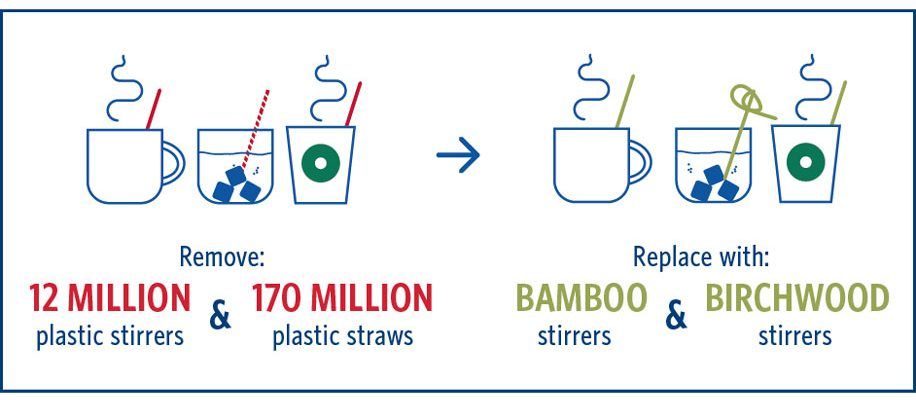Delta announced on Wednesday that it will cut down on non-biodegradable and plastic items being used on flights and in airports.
Next time you're on a Delta Air Lines flight, you might notice a few changes when it comes to food and beverages. Chances are, the stir sticks, utensils, straws, and even the food wrappers will look and feel a bit different. Those little hospitality amenities will be part of a major environmental directive.
Once put into effect as part of its current eco-friendly initiatives, it will annually cut out more than 300,000 pounds of waste that would otherwise wind up in a landfill. Put into context, Two Boeing 757s would weight just as much as what Delta plans to eliminate.
PREVIOUSLY: THIS SHORT FILM SHOWS HOW DRONES CAN PROTECT ANIMALS AGAINST POACHERS
For sure, disposable stir sticks and straws will be pulled from Delta's inventory, while packaging for food and utensils will likely be replaced by more biodegradable materials. The company has already eliminated some of the wrappings from food kits served to Delta One passengers, who also use birch stir sticks and bamboo straws with their drinks. Cafeterias operated by the airline have drastically cut down on styrofoam food containers. The overhaul on flights affecting the rest of passengers will take effect most likely during the summer of 2019.
The Delta announcement follows the moves made by other airlines to cut out plastics used in-flight. In May, Alaska Airlines declared it would get rid of plastic stir sticks and straws and replace them with similar items made from marine-friendly materials. July saw American Airlines introduce its own policy to eliminate plastic straws, with United Airlines following suit in September. JetBlue and Southwest have also jumped on the eco-friendly bandwagon by introducing similar measures.
According to environmental lobby group strawfree.org, half a billion straws are disposed of daily in the U.S. If lined up, that's enough to wrap around the earth at the equator twice. Additionally, the Wildlife Conservation Society declared in its World Economic Forum report that eight million metric tons of plastic wind up in the ocean annually and by 2050, that disposed material will be heavier than the combined weight of fish in the oceans.
READ NEXT: RECYCLE YOUR PLASTIC BOTTLE IN EXCHANGE FOR TRANSPORT CREDIT IN ISTANBUL

